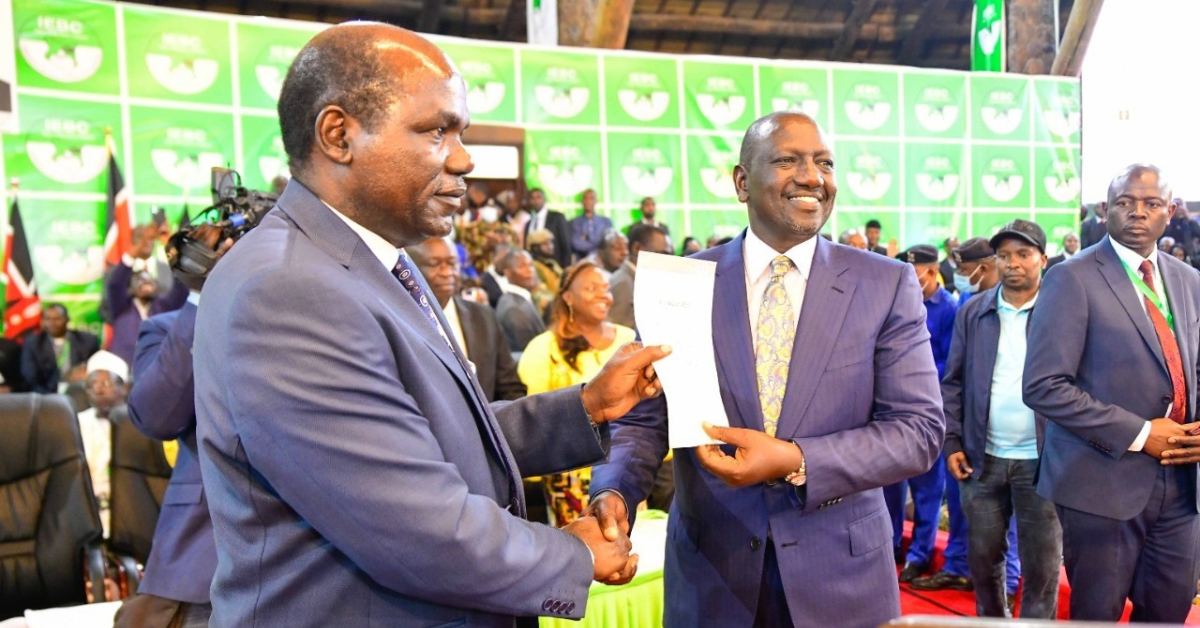I have written many times –sometimes with barely suppressed disdain, sometimes with dispassion, but always with intensity of conviction – on the topic of national leadership. I have mourned the loss of opportunity – year after year – due to what I have decried as a combination of leadership myopia, greed and incompetence. I have harangued the governed who, by their silence or cheer leading, are the greatest enablers of poor leadership.
I got my deserved punishment the other day when, as I railed against poor leadership, a friend asked a question that stopped me dead on my mental tracks.
If you were the next president, what are the three most important transformative things you would do?
It is one thing to criticise, but quite another to be put to test on the same thing you criticise. For several long and uncomfortable seconds, I was stumped. My mental gears jammed. I had never fancied myself as the president of Kenya – except occasionally in my dreams. During such moments, I could see myself doing so many things – from fixing annoying potholes to nailing the corrupt. But three most transformative things…this one got me scratching my head.
After I recovered my wits, I mumbled the following answer.
Bullet-proof vests. These will be my first priority. Enough ‘bullet-proof vests’ to engender a sense of security among those entrusted with the most delicate and serious public responsibility. A caveat is in order here. I use ‘bullet-proof vests’ only as a metaphor to mean a high level of personal security. Full disclosure: I got this idea from a friend – a senior judge currently serving in the government. His reasons were compelling. “We swear to serve the public without fear or favour,” he said, “but the truth is many of us with high responsibilities are full of fear. We either fear losing our jobs or our lives or the lives of those close to us.”
Now, when you reflect on this alongside chronic impunity, creeping state gangsterism, and the culture of money-at-any-cost, you begin to understand the Judge’s fear. If those expected to fearlessly discharge justice, or those with the responsibility to fight corruption, or those with investigative and prosecutorial powers live in fear of being killed or sacked, you can understand the widespread apathy, cynicism and the diminished expectations.
As president, my first priority will therefore be to ensure these public servants enjoy a high level of personal and job security.
Changing mindsets. This would be my second priority. A mindset is defined as a fixed mental attitude that determines how we interpret and respond to situations. It is simply a habit. But do not be discouraged by the word “fixed”. Habit, as we know, is stubborn, but the good news is it can be changed – often through shock therapy!
The prevailing Kenyan mindset is (President Julius Nyerere was right) man-eat-man. We have no hesitation ‘taking advantage’ if that would get us ahead. We are coarse and getting coarser in our manners.
But how do I change the prevailing mindset? I will borrow some tactics from the late Thomas Sankara, the former president of Burkina Faso. In just about four years before he was assassinated, he had profoundly transformed his citizens’ mindsets. He did this, in the words of his widow, “…through willpower, courage, honesty and hard work.”
Through a combination of charisma and personal example, and above all, dramatic action, Sankara literary held Burkina Faso by the scruff of its neck and shook it. Three examples of this high drama: he refused to have his portrait hang in public places, sold off the government fleet of Mercedes cars, including his own, and forbade the use of government chauffeurs and 1st class airline tickets.
Granted, some of what Sankara did were a little over the top. But the point is, dramatic action, like good comedy, gets baked into the mind. Imagine the president of Kenya sacking and ordering the arrest of all ministers implicated in corruption.
I will use a combination of dramatic personal example, seduction and force – where necessary – to effect a shift in public attitudes.
Intelligence. As president, my third priority will be to cultivate both the culture and competency in the art of collecting, analysing and interpreting information of military and economic value –especially from outside our borders. Strategy without intelligence is blind. Intelligence without strategy is lame. Successful nations (and businesses) know this.
I will seek to understand how a small nation called Israel has come to exemplify the best and most successful practitioner of the art of acquisition and application of military and economic intelligence.
With assured security, changed mindsets and superb intelligence capability, we can then implement all those things we have so fluently described in our development blueprints.

